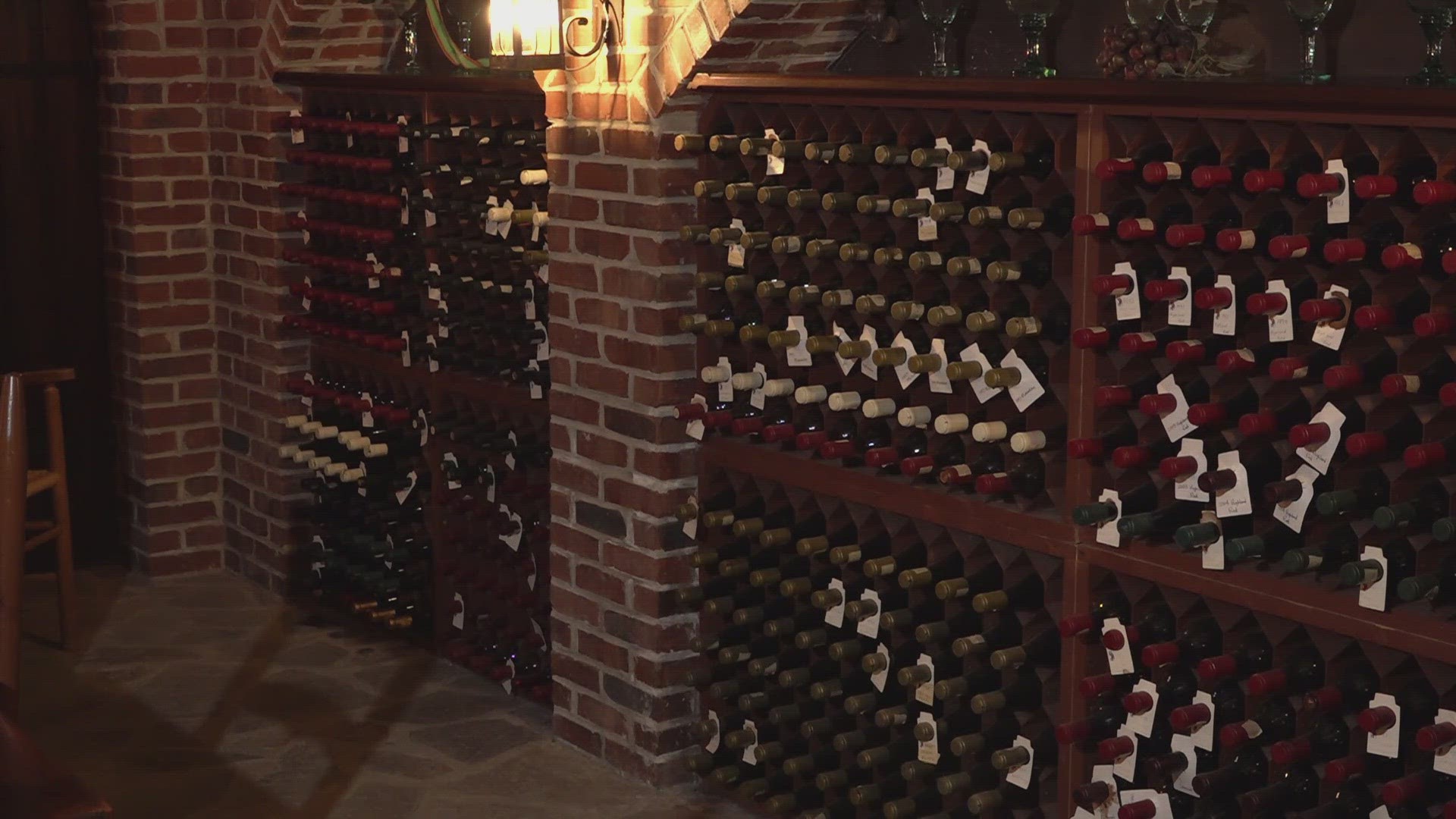JAMESTOWN, Tenn. — When people think of the best wine regions, their minds probably wander to France, Napa Valley, Spain, Italy, and the like. Few would consider Tennessee in that list currently, but grape growers and winemakers who live in the Volunteer State would love to change that. Much like a good vintage wine, they say Tennessee's "wine country" reputation just needs time to age into excellence.
Tennessee has an interesting history when it comes to wine -- one that ended up being mostly sour grapes due to prohibition in the U.S. In the late 1800s, viticulturists saw great potential in building Tennessee into a wine destination because the geography and climate here are fit for growing a variety of high-quality grapes. There are several distinct growing regions in the state where unique varieties of grapes can be cultivated.
According to the Tennessee Historical Society, winemaking began growing and thriving at the turn of the century -- and it was on the path to becoming a very lucrative industry. That all came to a halt just before the 1920s when the Eighteenth Amendment was ratified -- ushering in 13 dry years across the U.S.
Tennessee's blossoming wine industry abruptly withered and went dormant under prohibition. Even after prohibition, it remained dormant across the South as places like Napa Valley and Sonoma started reforging names for themselves. Commercial grape growing didn't even resume until the mid-1970s in Tennessee, according to the Tennessee Department of Agriculture. The industry was able to restart after the passage of the Grape and Wine Law in 1979.
Tennessee's oldest winery was established shortly after in 1980 -- and it sits here in East Tennessee on the Cumberland Plateau.
Highland Manor Winery opened a little more than 40 years ago in Jamestown. Butch and Gertie Campbell bought the winery in 1999, and the two retired in 2016 and were succeeded by their nephew, Frederick Moody, and Rhonda Moody. Rhonda is also president of the Tennessee Farm Wine Growers Alliance, which represents close to 99% of the wineries in Tennessee.
"We have grown exponentially since 2016," she said. "We added a brewery/taproom in 2019 so now we have our beer on-site as well as our wines."
Some prohibition-era restrictions on alcohol sales are still in effect in many Tennessee counties and have been slow to change. Up until 2017, it wasn't legal to sell wine in grocery stores in Tennessee. Dry counties also still exist -- with most of those being here in East Tennessee.
With the legal restrictions in the state, Tennessee wineries have faced an uphill battle trying to establish themselves, but that slope is starting to become more gentle. Rhonda Moody said she hopes to see the state further cultivate the industry's growth.
"We would love to see more grapes produced in Tennessee and more wineries for that matter. We can grow grapes and produce wine just like California and some of the other states. It's just a matter of getting the people, the work hands, and the people invested in this industry," Moody said.
As of late 2020, the University of Tennessee Institute of Agriculture's studies into the state's wine industry showed a few areas of improvement -- one being the need for a statewide wine trail. It thinks East Tennessee would be a key stop along that trail.
"A statewide wine trail can also help establish a larger area as a wine tourism destination by developing linkages between the hospitality industry and the wine industry. Clusters of wineries have emerged in the three main regions of Tennessee, with Eastern Tennessee having the largest cluster in and around Sevier County," the report said.
You can find a map of Tennessee's wineries on the Tennessee Farm Winegrowers Alliance's website at this link.

